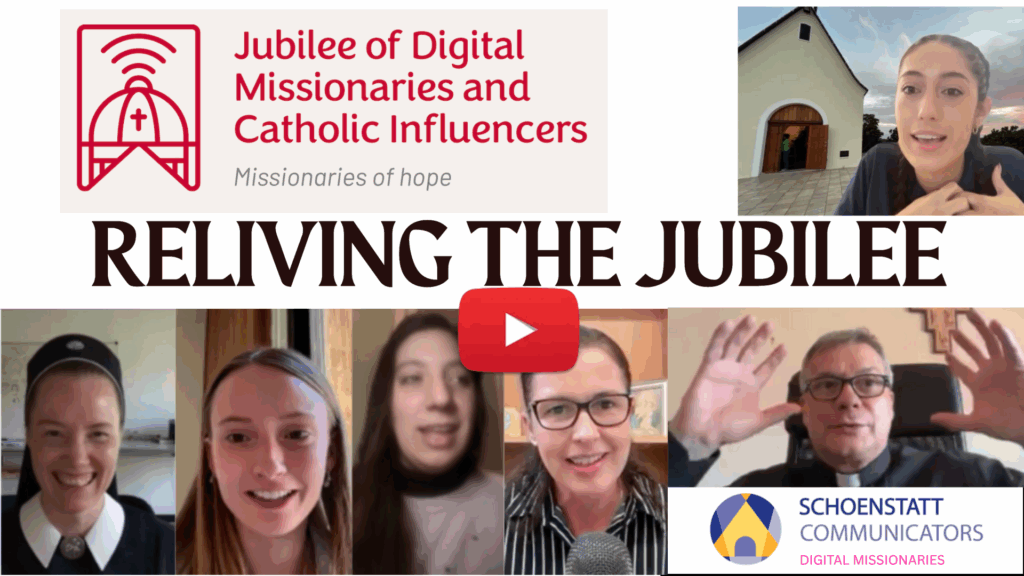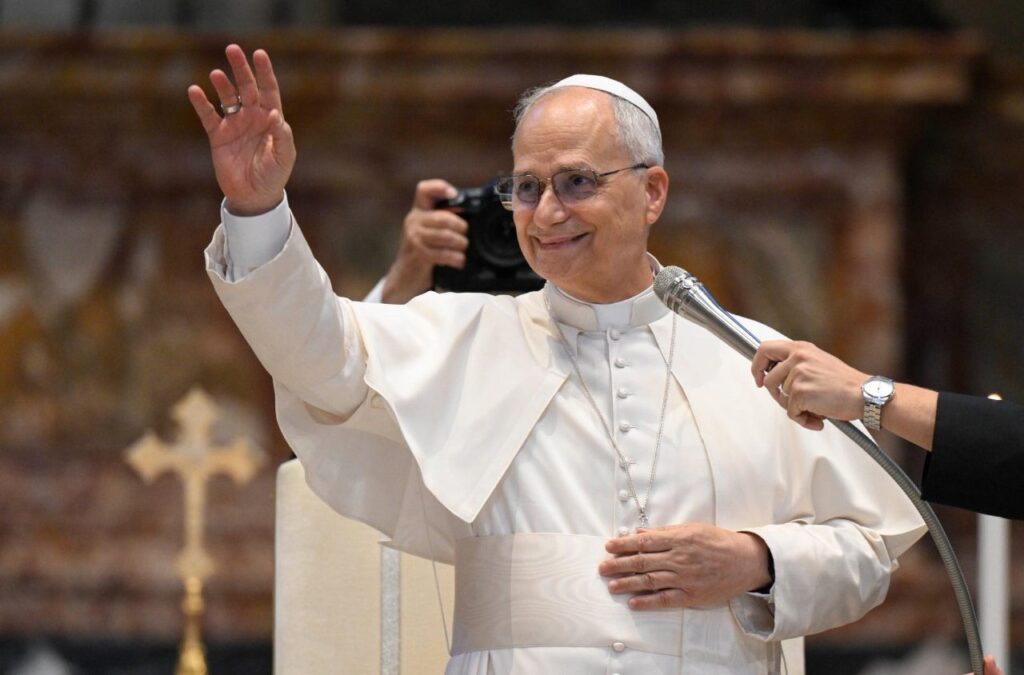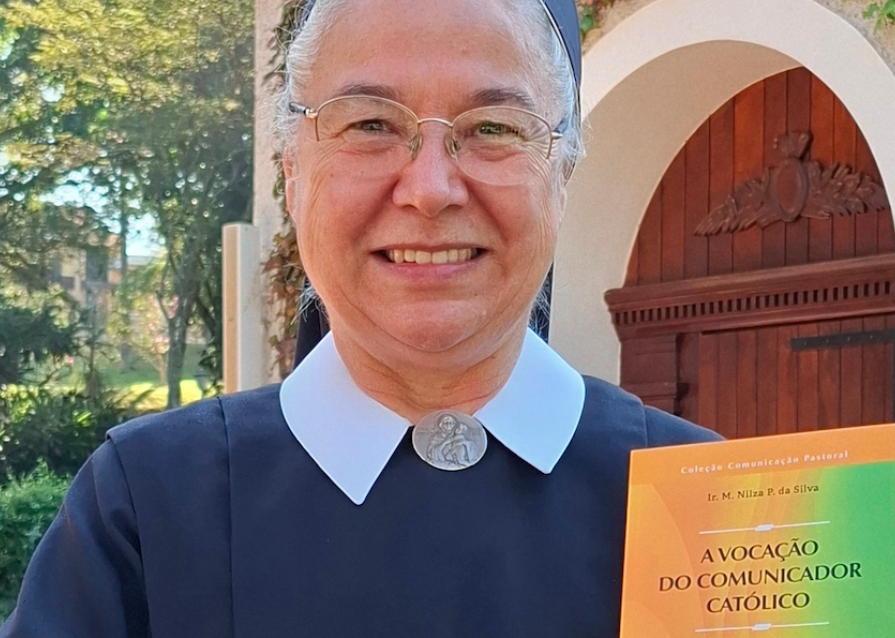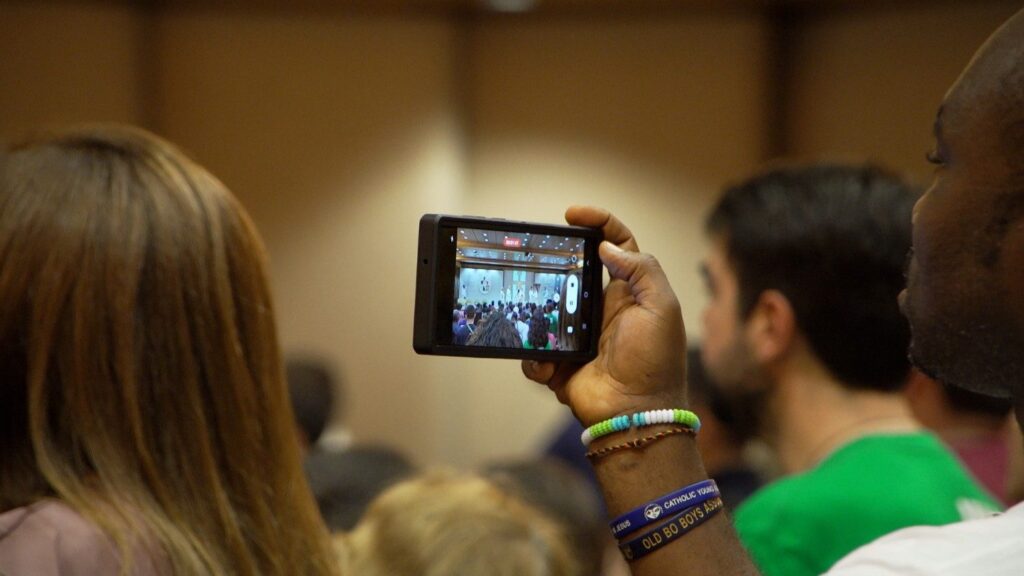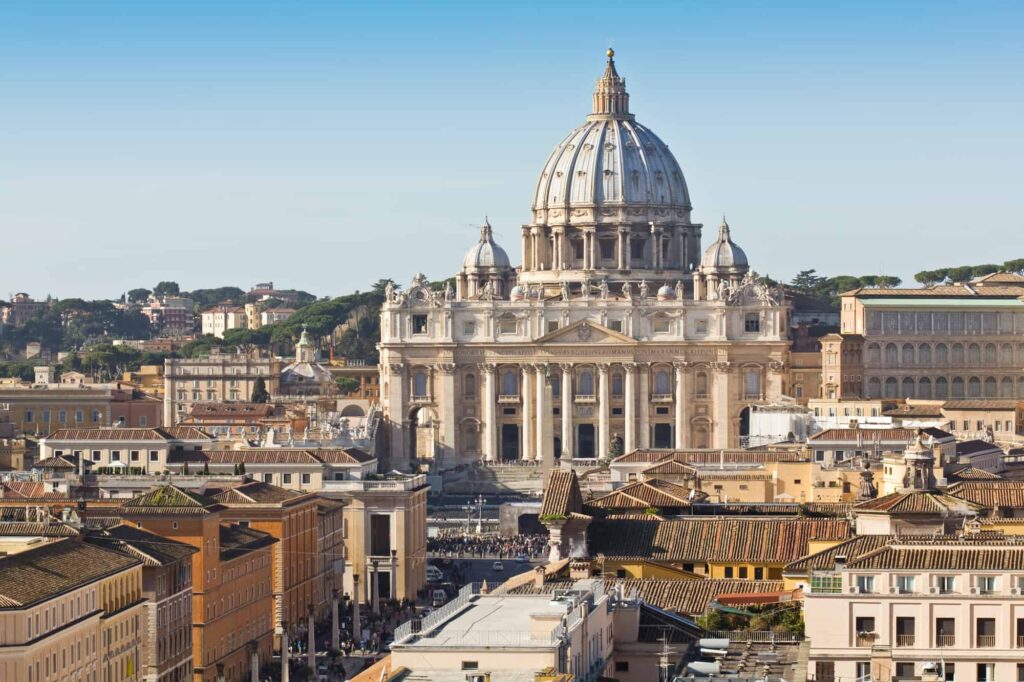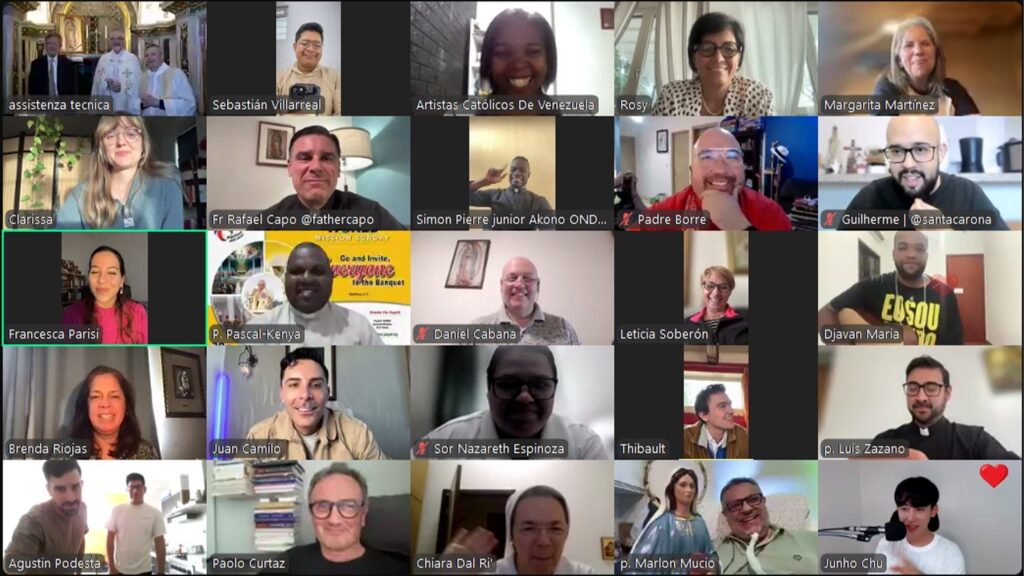Reliving the Jubilee of Digital Missionaries: “You are here because something burns inside you.”
ES PT DE Watch the video: Digital missionaries and Catholic influencers meet with Msgr. Lucio Ruiz to share their Jubilee experiences After offering several webinars with Msgr. Lucio Ruiz, secretary of the Vatican Dicastery for Communication, to encourage the participation of digital evangelizers in the Jubilee in Rome (July 28-29, 2025), Schoenstatt Communicators and Digital Missionaries organized a gathering to collect the experiences of this event. Testimony from Msgr. Lucio Ruiz Msgr. Lucio Ruiz delivered a talk summarizing the main points of the international gathering. He began by explaining what the two key objectives of the Jubilee were. “The first”, he noted, “was for those working on Instagram, YouTube, TikTok, podcasts, blogs, WhatsApp, evangelizing on social media, to feel they are not alone, that the Church recognizes them as a living part of its mission.” The second objective was, he added, “for the universal Church to have a point through which to discover the digital mission more deeply as a truly new chapter in the Church’s missionary history.” Six Key Values of the JubileeMsgr. Ruiz then highlighted key phrases from various speakers, presented through the lens of six values that had, in one way or another, marked the entire event: 1. Communion In the words of Cardinal Parolin: “The digital space is not just a tool, but an environment that shapes how we think, feel, and relate to each other. Mission cannot be reduced to techniques; it must be a living presence of the Church.” Paolo Ruffini, Prefect of the Dicastery for Communication, said, “The Church has always been a network, the true network that unites us comes from God and from baptism. Communion is not measured in followers nor statistics, but in the mystery of being part of the same body, whose head is Christ.” He continued, “In a digital world marked by competition and the logic of going viral, we are invited to be a community that transforms virtual platforms into places of encounter.” 2. Formation Paolo Ruffini spoke of “authentic media and digital literacy,” noting that “it is necessary to form spirituality in order to communicate from the heart of the Gospel, not from the logic of marketing.” Father David McCallum invited digital missionaries “to live formation from contemplation and discernment.” Mons. Ruiz explained that “he made us silence ourselves, look inside our hearts, to ask what moves us, and whether we are doing it well.” In Fr. McCallum’s words, “the formation of a digital missionary is not just about learning to use tools, but about cultivating a perspective on reality based on faith.” 3. Testimony Msgr. Rino Fisichella paraphrased words of Paul VI: “The world today does not listen to influencers; it listens to witnesses. And if they listen to influencers, it’s because they are witnesses.”Father Antonio Spadaro, quotes Msgr. Ruiz, affirmed, “you are not here to receive a Catholic communication strategy. You are here because something burns inside of you. It’s not enough to create content. What is convincing is the coherence between life and what is proclaimed.” He continued with a question: “Do my contributions come from the fire of the Gospel or from the fear of not being seen?” 4. Unity On the challenge of unity, Msgr. Ruiz emphasized, “In the midst of polarization, unity is the condition for credibility.” He explained, “we may win a discussion, but if we break communion, the one who loses is the Gospel.” He pointed out that “the subject of evangelization is not each individual in the Church, but the Church itself,” stressing the importance of being in unity with the Church, the pastors, the local communities, and fellow influencers and missionaries. 5. Synodality Quoting Kim Daniels, Msgr. Ruiz said, “Digital spaces foster synodality because they allow the voiceless to be heard and promote shared responsibility.” Cardinal Luis Tagle reminded the listeners that “the Church grows by attraction, not by imposition,” and that “the digital world can be a fertile ground to show that attraction of Jesus, as long as it is lived in a spirit of listening and dialogue.” 6. Fraternity Quoting Father Spadaro, Msgr. Ruiz emphasized, “You are not a brand, you are a blessing. Do not create a fan club; create fraternity.” Msgr. Ruiz continued, “this phrase expresses what many of us feel: digital mission cannot be reduced to metrics, it has to embody true relationships.” At the same time, Cardinal Michael Czerny remarked, “It’s not just about virtual fraternity, but a fraternity that includes the discarded. In fact, especially the discarded.” Msgr. Luis de San Martín emphasized, “The digital mission is only authentic when it helps us live in communion with the whole Church.” Exhortations from Pope Leo Msgr. Ruiz closed his summary of the Jubilee of Digital Missionaries with contributions from Pope Leo, noting that “he gifted us three exhortations that are a program of life for each of us.” The first exhortation from the Pope, explained Msgr. Ruiz, was to “seek the suffering flesh of Christ in each brother and sister.” He continued, “It’s not just about generating content, but about finding hearts.” For Ruiz, “these words completely change our perspective, because many times we think about digital realm as production, but the Pope reminded us that the measure is not the algorithms, but the concrete faces, the real people behind the screens,” and, in Pope Leo’s words, “The digital mission only makes sense if it leads us to touch those wounds.” The second powerful idea from the Pope, as Ruiz shared, was: “Go to repair the nets,” and he added that we are called to mend what has been broken in the social and digital fabric. Quoting the Pope, he said, “Your mission is not to feed those cracks, but to repair them.” The third key idea from Pope Leo, as Ruiz noted, is “to feel loved and be grateful.” He continued: “The Pope thanked influencers for all they do on digital platforms, as if saying: We see what you do, we know what you give, we recognize and

